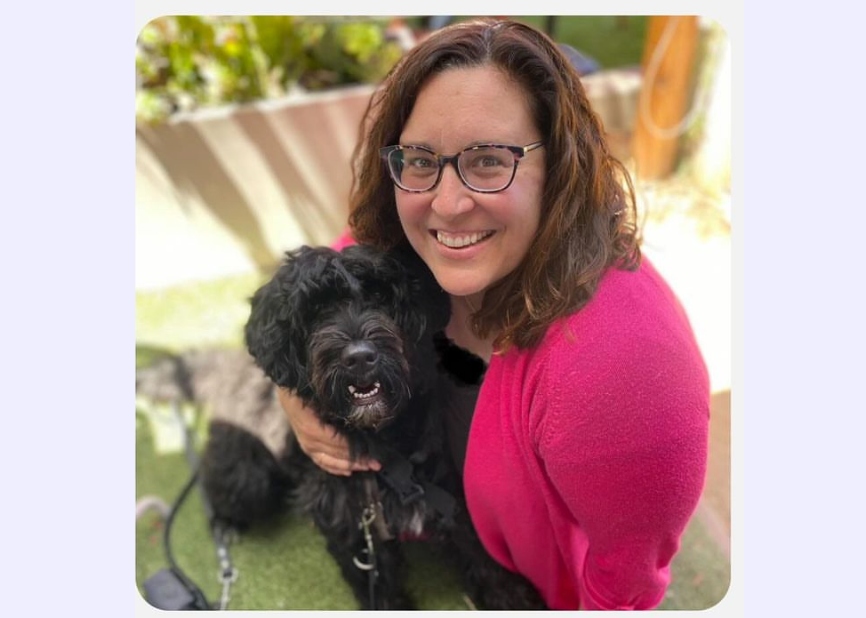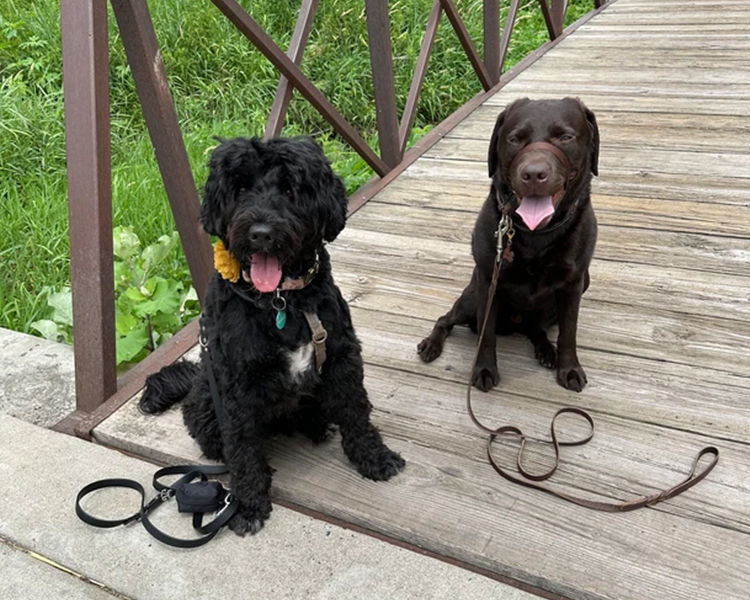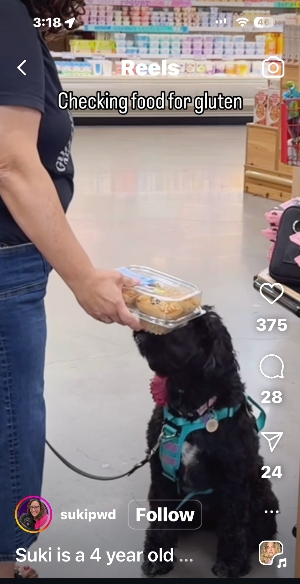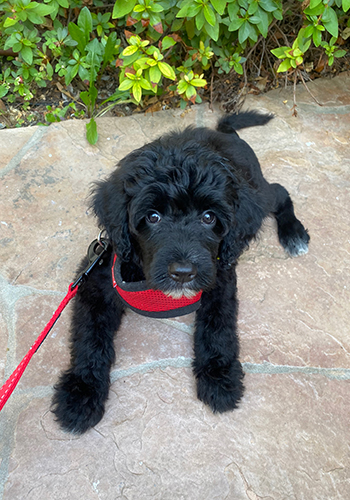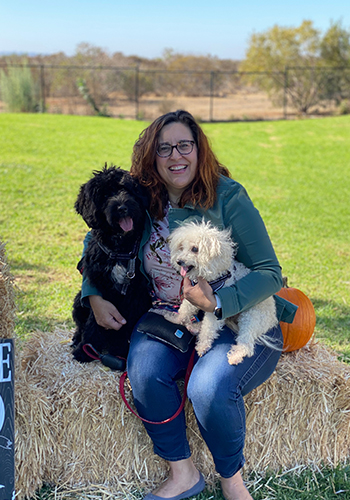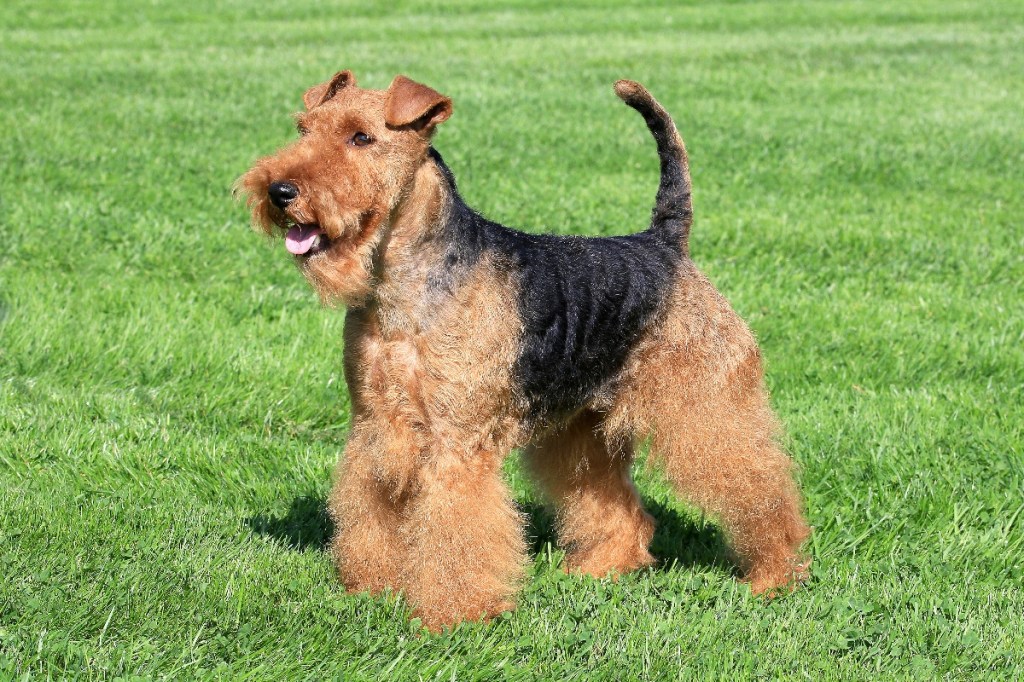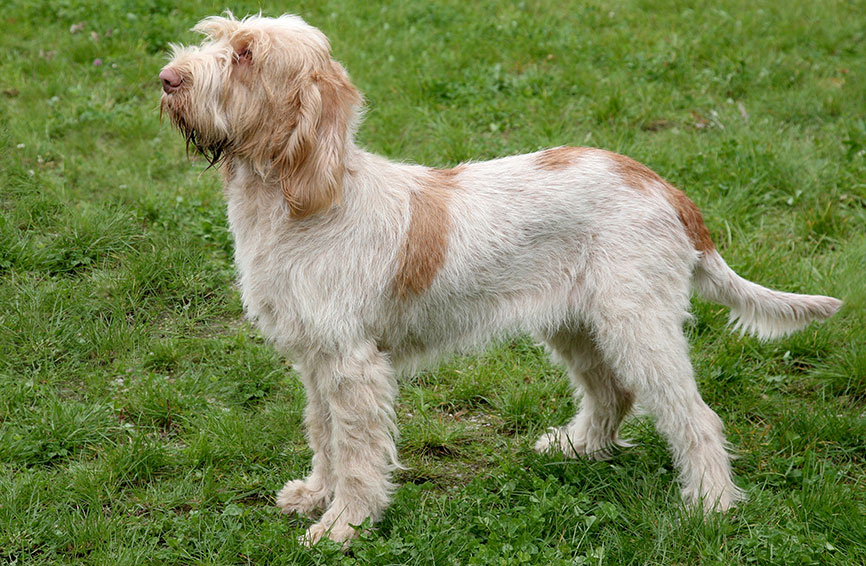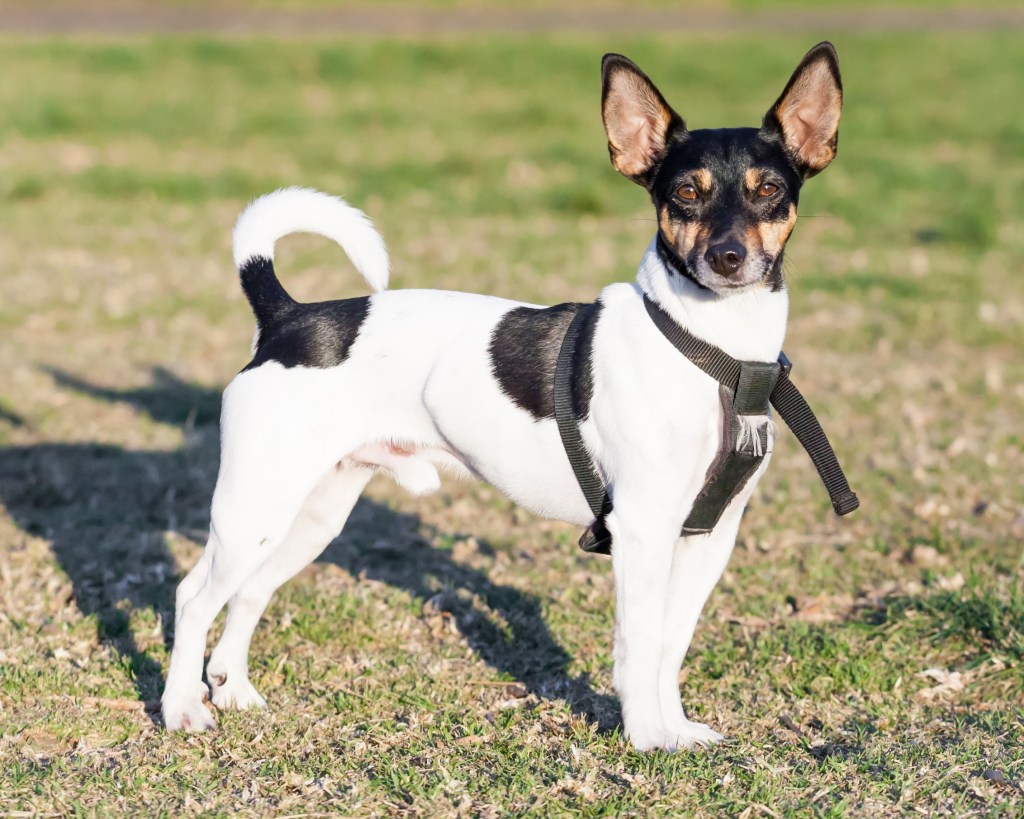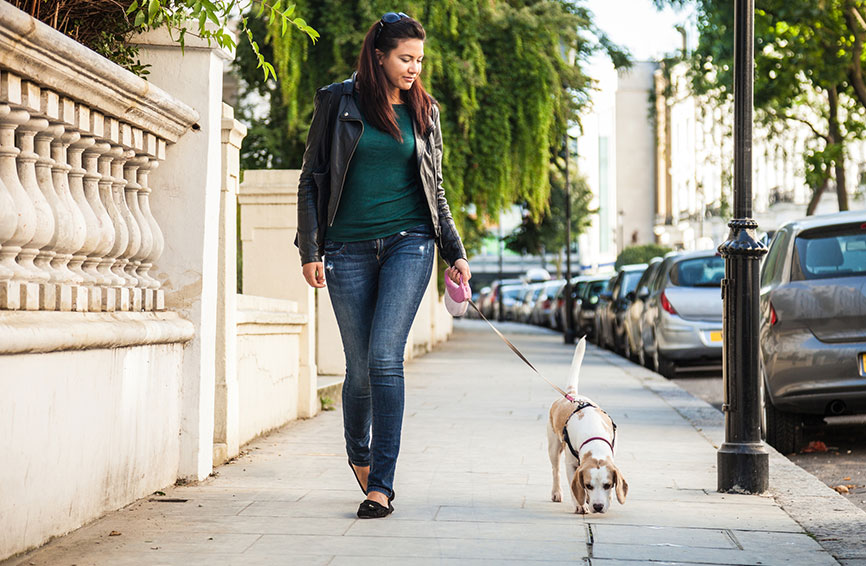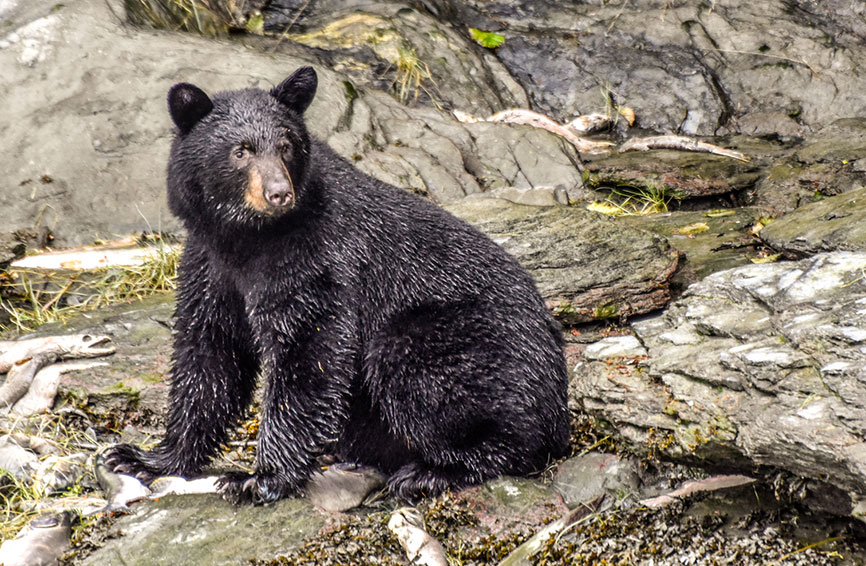Table of Contents
In 2017, San Diego resident Kendra couldn’t shake a cough for months. After a battery of tests, she was diagnosed with celiac disease, an auto-immune condition triggered by the ingestion of gluten.
Kendra, a Healthy Paws customer, had suffered from gastrointestinal discomfort and other issues for years, not knowing the cause. When she cut out obvious gluten, her condition improved, but she was still getting sick every time she ate meals outside of her home. She needed to become extremely strict about eliminating all gluten to feel healthy.
Gluten, a protein found in wheat, barley, rye, and other grains, is contained in many foods, such as bread, but also in less obvious items, such as soy sauce, salad dressing, and soups. Far more serious than the common gluten insensitivity, celiac disease can cause the sufferer to be sick for weeks or even months after ingesting even a trace of gluten, Kendra said.
“For me, a reaction to gluten causes stomach upset, body aches, a rash and brain fog. It looks different for everyone. There are up to 200 symptoms that people with celiac might experience,” Kendra said.
As you can imagine, living with celiac disease in our gluten-filled world can mean navigating a minefield of social situations and tricky food choices.
Kendra, who has become a celiac influencer and educator through her website and channels on Instagram, TikTok, and YouTube can’t go out for a spontaneous meal. She must research the restaurant and check reviews. She reads the labels on any food she is considering. She has found that many times, foods identified as gluten-free actually do contain traces of gluten. All it takes is a knife that was used to cut bread and then reused to slice a gluten-free item to set off a reaction.
As part of her job, Kendra attends many conferences and work dinners where she can’t eat the food and must bring her own or go hungry. This sometimes makes for awkward social situations. The debilitating illness she suffers if she accidentally ingests gluten has caused Kendra to miss work in the past, hurting her career and relationships. “If I went out with friends, I rarely would eat with them because I would get sick from cross-contact. It wasn’t worth the risk of missing out on the time with friends if I got sick,” she said.
Kendra discovers gluten-sniffing dogs
While trying to learn as much as she could about her condition, Kendra listened to a Celiac Project podcast that featured a story about specially trained gluten-detection dogs. Already a pet parent to one senior dog, she thought about getting her own gluten-sniffing dog. But with few trainers who specialize in gluten detection dogs, the cost of getting one already trained was prohibitive.
She adopted a Portuguese water dog puppy that she named Suki because she enjoys the breed. It was the early days of the COVID-19 pandemic, so she decided to use the time of isolation to train her puppy herself with the help of a gluten-detection trainer. She said training a dog in such a specialty is no easy task. It takes about two years of diligent work to train a dog to detect gluten, and there is no guarantee of success. Kendra met regularly via Zoom with her trainer and then practiced behavior and gluten- detection skills with Suki. She still does regular “maintenance” training to keep Suki’s skills sharp.
“Unlike a simple task like picking up an item, for gluten detection, I need to know how to read her body language and understand if she is sniffing well or just giving a behavior. As a handler, that is not something you can learn yourself or via a quick tutorial or video. This requires ongoing training with a professional who sees your body language as well as the dog’s body language,” Kendra said in an Instagram post.
Once fully trained, Suki became invaluable to Kendra in helping detect gluten in unexpected places. Now three years old, Suki became certified as a task-trained service dog, allowing her to enter restaurants and stores and travel with Kendra.
“She keeps me well. She has saved me several times from getting violently ill from gluten,” Kendra said.
How Suki helps Kendra stay healthy
Having a gluten-detection service dog has given Kendra the freedom to live a mostly normal life without fear of getting sick.
“She checks all my food, medicine, and personal care products. I present the item to her, and she sniffs it. Then, she raises a paw if she detects gluten and boops my leg if there is none. She gets a treat for both gluten and gluten-free alerts,” Kendra said. The technique is demonstrated in Instagram posts where Suki indicates that Trader Joe’s gluten-free donut holes really are safe for celiacs, but a lettuce-wrapped taco unexpectedly contained gluten.
Visiting stores and restaurants
When shopping or eating out, Kendra always brings Suki and has her sniff any packaged or prepared food to see if it contains gluten. Living in Southern California, Kendra has rarely been denied access to businesses when she approaches with Suki wearing a service dog vest. She also thinks that restaurants take her condition more seriously when they see she needs a service dog to help.
Even when taking great care to order a completely gluten-free meal, Suki can find that a part of that meal is not gluten-free. This may be something as simple as gluten-free toast that she alerted to on a breakfast plate. Most likely, the source of the gluten is from handling or from some gluten-filled ingredient. Something as simple as a person picking the gluten-free bread up with hands that touched gluten bread would pass the gluten on to the bread. That small amount can make Kendra sick.
The biggest problem in public is when people insist on petting or playing with Suki when she is working or when people bring in pet dogs that are not well trained, she said. “I do my best to educate people that it is not appropriate to pet a service dog as it distracts them from their job,” she said. “This is especially important for service dogs who are the handler’s lifeline like cardiac alert dogs. A quick distraction may mean that dog misses a cardiac incidence, and the handler falls and hurts themselves.”
The rest of Suki’s life
While she has an essential job, Suki’s life is not all work. In fact, she only works about one percent of the time and the rest of the time, she can relax and play. “We walk three times a day, and when we aren’t walking, you can find us at the park with our friends at Yappy Hour every day. Most of the time at home you will find her on the couch or in her comfy bed. She does like to lay under my desk when I am working and put her head on my feet,” Kendra said.
Because she is a service dog, Suki has traveled with Kendra all over. She has played ball on beaches in San Diego, Miami, Honolulu, and Maui.
Kendra signed Suki up for Healthy Paws pet insurance when she was a small pup. Given the outsized importance Suki plays in her life and the time and expense of training her, she doesn’t want to take any chances should she become sick or injured.
Kendra becomes a celiac advocate
Given how much Suki has changed her life, Kendra has become an advocate for people struggling with celiac disease and for gluten-detection dogs. She wasn’t diagnosed with the condition until she was 40 and she wants to raise awareness so other people can be diagnosed sooner and learn to live with it, especially children who may suffer for years with health problems before they are diagnosed. She’s also seen people pay thousands of dollars for training, and their dog is not successful. Because of this, she is developing some courses to help people gain the knowledge they need to determine if a gluten detection do is right for them, and how to go about finding a trainer and starting the process. Instead of going into it blindly, they will be able to make wise decisions and will improve their chances of success in the long term. She personally recommends only two trainers, who both offer specialized training over Zoom.
Gluten detection dogs must have an ability and interest in work, and a good temperament – friendly, social and eager to please, Kendra said. They can’t be aggressive, scare easily or be hyperactive. And while Suki has been successful as a detection dog, Kendra doesn’t recommend the Portuguese water dog breed to others for gluten detection. The breed can be independent and hard to train. The breeds most used for gluten detection are Labradors, poodles, and Golden Retrievers, she said.
Conclusion
Dogs enrich our lives in so many ways, but for people like Kendra and others who rely on service dogs, they are an absolute lifeline. While gluten-detection dogs are a fairly new phenomenon, with patience and training, they can make life much easier for people with celiac disease.
